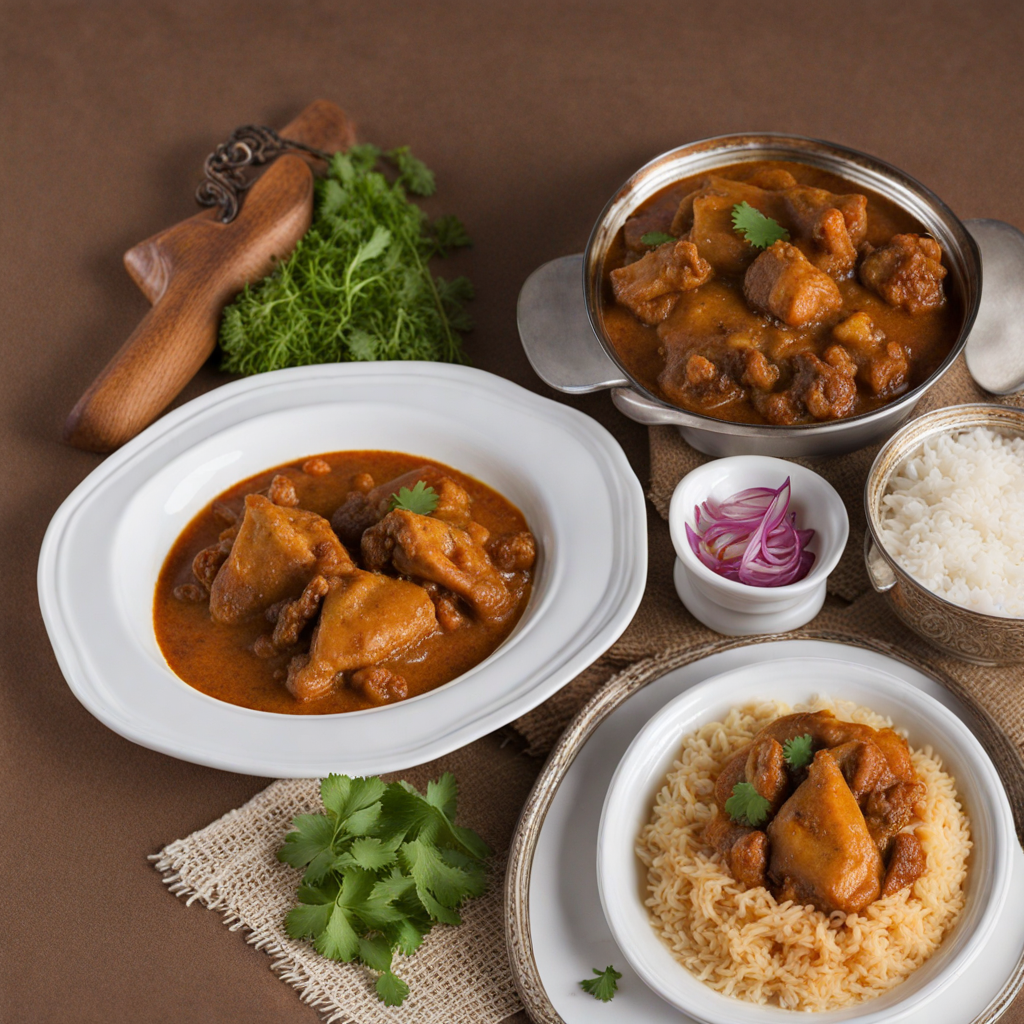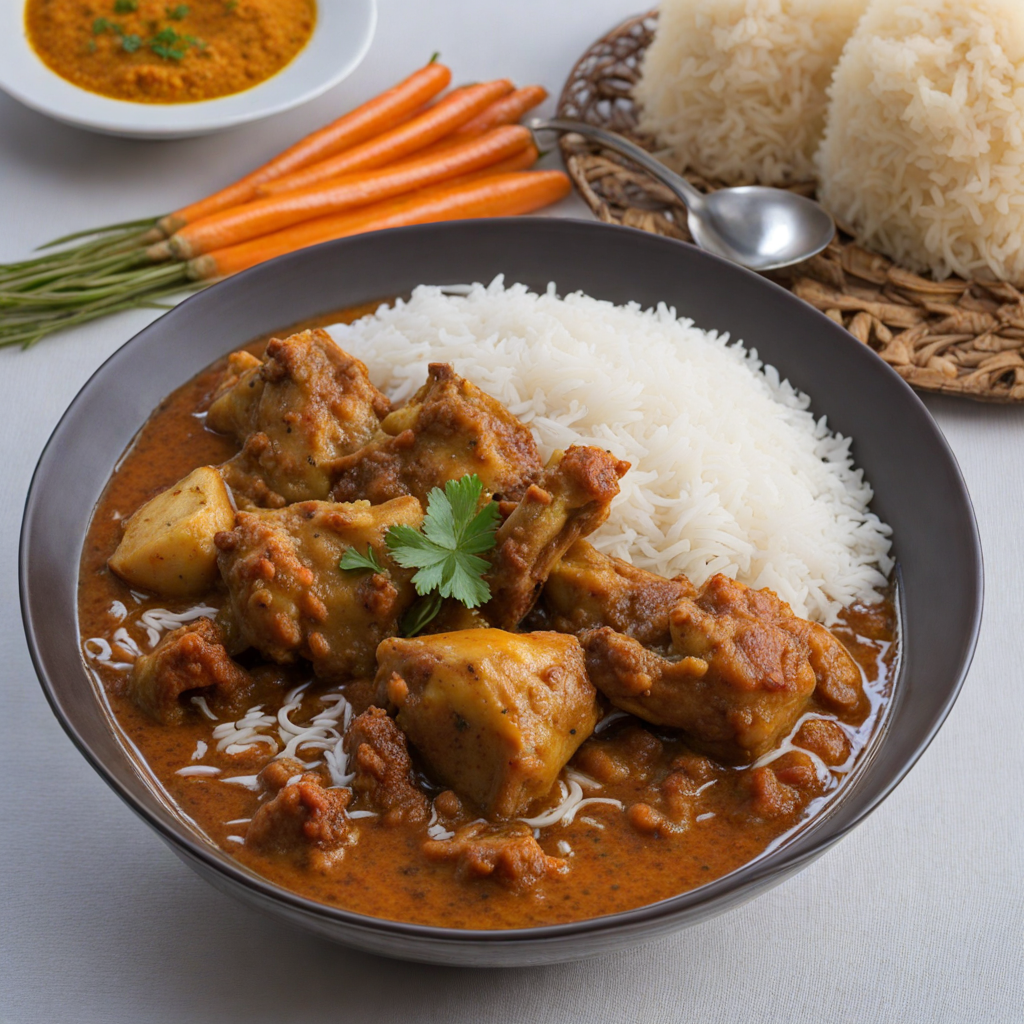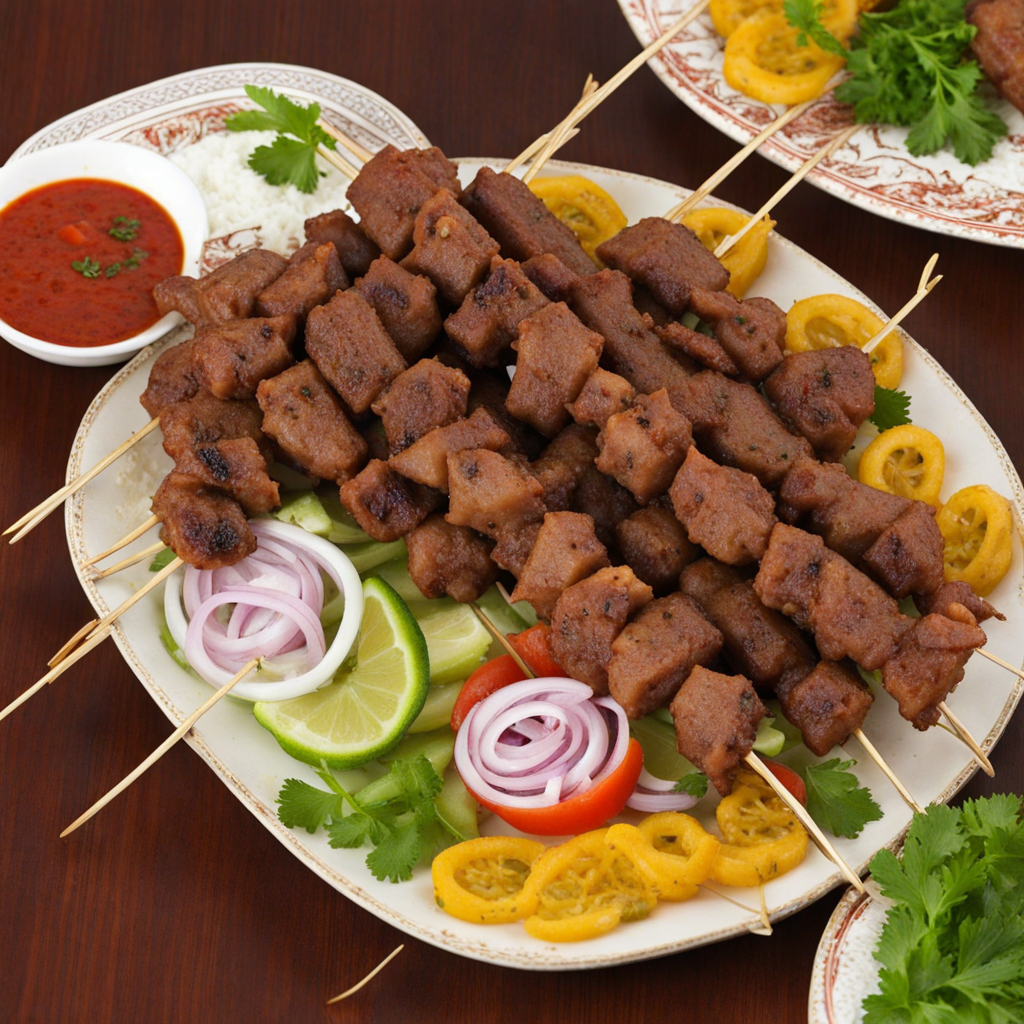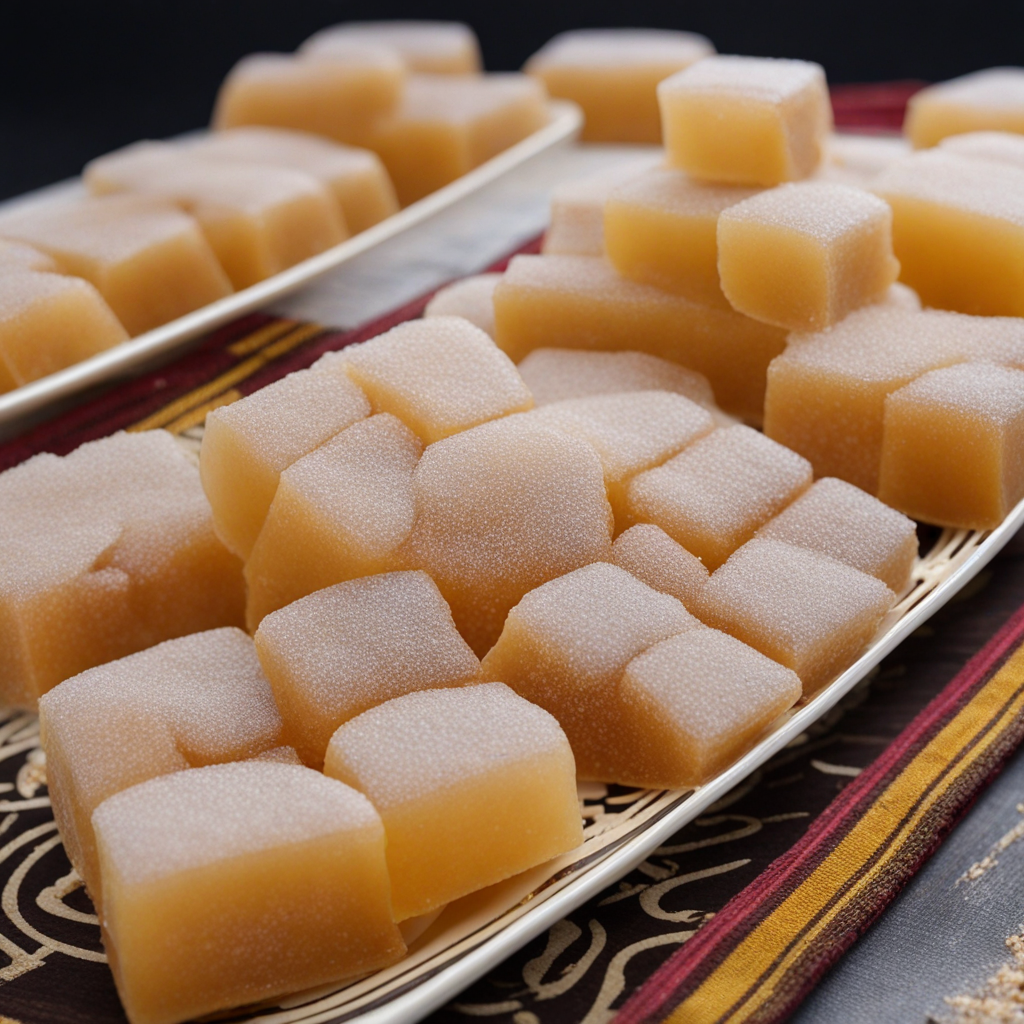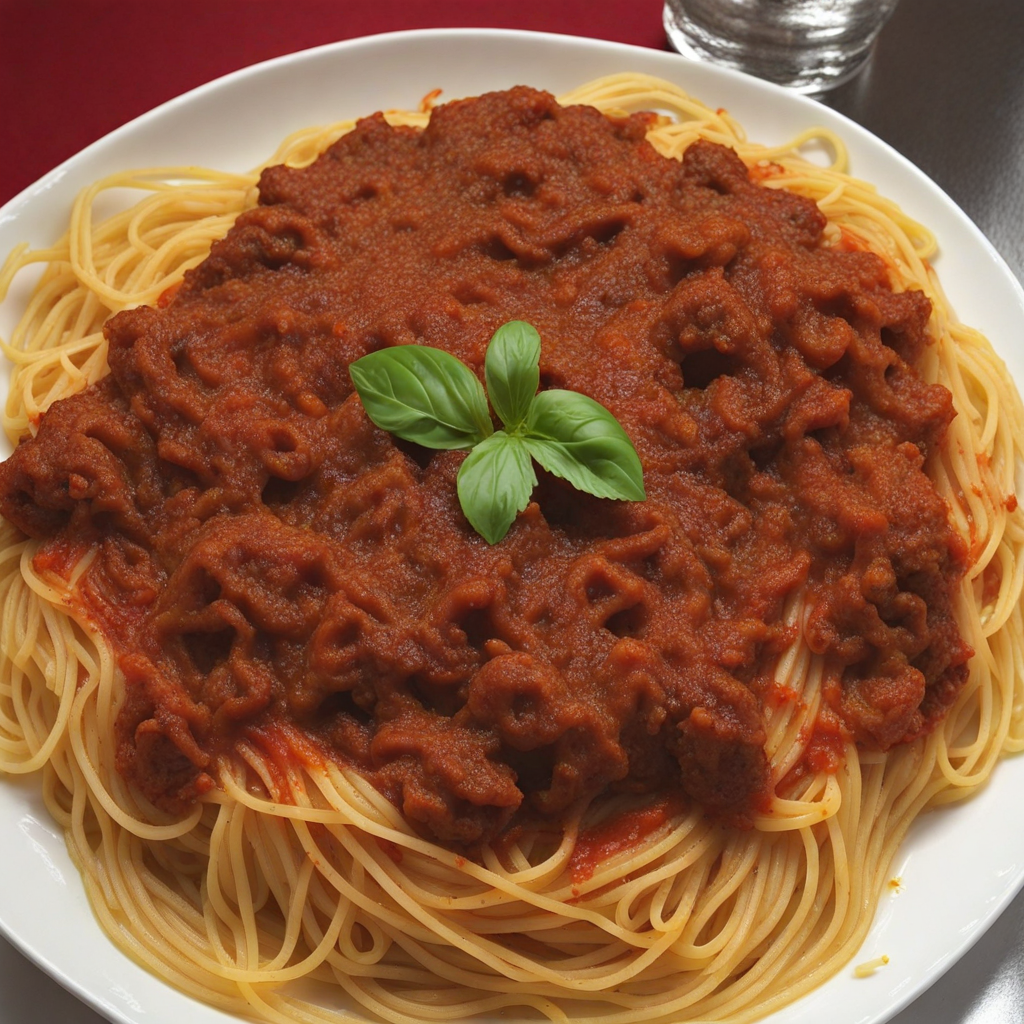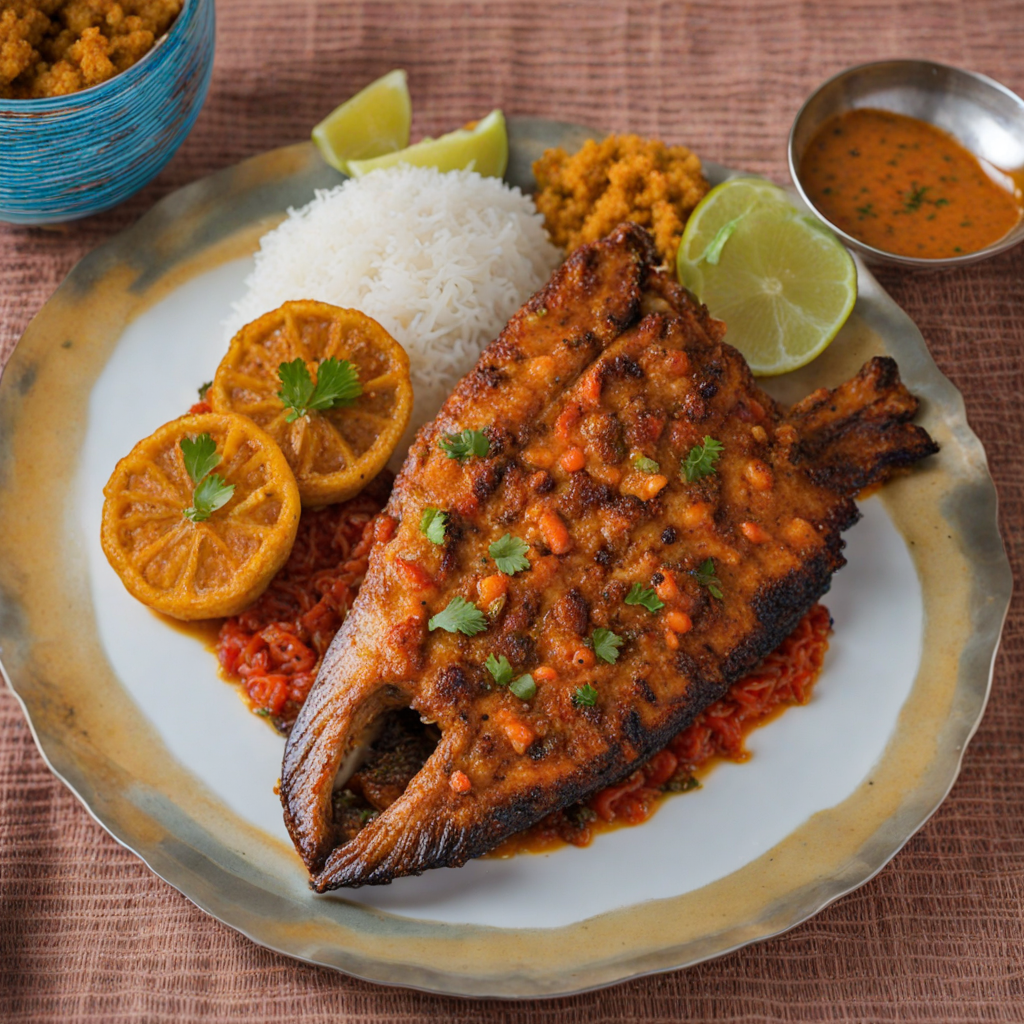Maraq Digaag
Maraq Digaag is a delightful Somali chicken stew that embodies the rich culinary heritage of Djibouti. This dish is a wonderful blend of tender chicken pieces simmered in a fragrant broth, infused with an array of spices that transport you to the heart of the Horn of Africa. The use of traditional spices such as cumin, coriander, and cardamom creates a warm, aromatic profile, while fresh ingredients like tomatoes, onions, and garlic add layers of flavor. The slow-cooking process allows the spices to meld beautifully, resulting in a savory stew that is both comforting and invigorating. One of the standout features of Maraq Digaag is its versatility. Although chicken is the star ingredient, the stew can also be enhanced with vegetables like carrots and potatoes, which soak up the flavorful broth, adding sweetness and texture. Typically served with a side of fragrant rice or flatbreads, the dish offers a delightful balance of flavors and a satisfying, hearty meal. The vibrant colors of the ingredients also make it visually appealing, inviting you to dig in and savor each bite. Maraq Digaag is not just a meal; it is an experience steeped in tradition and hospitality. Often prepared for family gatherings and special occasions, it brings people together around the table, fostering a sense of community. Enjoying this dish allows you to appreciate the warmth and richness of Djiboutian culture, as every spoonful tells a story of shared meals and cherished moments. Whether you are seeking to explore new culinary horizons or simply craving a comforting stew, Maraq Digaag offers an unforgettable taste of Djibouti that will leave you wanting more.
How It Became This Dish
The History of مرق دجاج (Marq Dajak) in Djibouti Introduction مرق دجاج, known as Marq Dajak in Djibouti, is a traditional chicken stew that embodies the rich culinary heritage of the Horn of Africa. This dish is more than just food; it is a cultural symbol that reflects the history, social customs, and diverse influences that have shaped Djibouti. With its roots deeply embedded in the region's history, Marq Dajak is a testament to the confluence of African, Arab, and French culinary traditions. Origins of Marq Dajak The origins of Marq Dajak can be traced back to the early communities that inhabited the area that is now Djibouti. The region has long been a crossroads of trade, where African, Arab, and later European cultures converged. The presence of the sea, coupled with the fertile lands near the Awash River, facilitated the growth of agriculture and livestock rearing. Chickens were one of the first domesticated animals, and their meat became a vital source of protein in the local diet. As trade routes flourished, spices and cooking techniques from the Arabian Peninsula began to influence local cuisine. Ingredients such as cumin, coriander, and turmeric became staples in Djiboutian kitchens, and Marq Dajak evolved to incorporate these flavors. The dish typically features chicken simmered in a fragrant broth, accompanied by vegetables and spices, reflecting the region’s agricultural bounty. Cultural Significance Marq Dajak holds a special place in Djiboutian culture. It is often prepared during significant occasions such as weddings, religious festivals, and communal gatherings. The dish symbolizes hospitality and generosity, as it is common for families to prepare large quantities to share with guests. The act of cooking Marq Dajak is often communal, bringing together family members and neighbors, reinforcing social bonds. In Djiboutian households, the preparation of Marq Dajak is an event that may take hours, involving intricate steps that are passed down through generations. The recipe may vary from one family to another, with each adding their unique twist, further enriching the cultural tapestry of the dish. The gathering around a communal bowl of Marq Dajak fosters a sense of belonging and community, making it not just a meal but a shared experience. Development Over Time As Djibouti underwent significant political, social, and economic changes, so too did Marq Dajak. The colonial period in the late 19th and early 20th centuries introduced new ingredients and cooking methods to the region. French influence, in particular, brought about a fusion of culinary practices that modified traditional recipes. The introduction of techniques such as sautéing and the use of richer stocks began to appear in Marq Dajak preparation. Post-independence in 1977, Djibouti experienced a resurgence in national pride, leading to a revival of traditional dishes like Marq Dajak. Efforts to preserve cultural heritage were paramount as the country sought to assert its identity on the global stage. Chefs began to experiment with the dish, incorporating modern cooking techniques while respecting its origins. The use of locally sourced spices and organic ingredients became a hallmark of contemporary Marq Dajak, appealing to both local and international palates. In recent years, the globalization of food culture has also affected Marq Dajak. With the rise of social media and food blogs, Djiboutian cuisine has gained visibility on a global platform. Recipes for Marq Dajak have been shared widely, inspiring chefs beyond Djibouti to recreate the dish and adapt it to their culinary styles. This exchange of ideas has led to exciting innovations, including vegetarian and vegan versions that cater to a broader audience, while still honoring the essence of the traditional recipe. Modern Interpretations and Globalization The modern culinary scene in Djibouti reflects a blend of tradition and innovation. Restaurants specializing in Djiboutian cuisine have popped up, both locally and in diaspora communities around the world. Many of these establishments feature Marq Dajak on their menus, often accompanied by traditional sides such as injera (a sourdough flatbread) or rice. This adaptation not only caters to contemporary tastes but also helps educate a global audience about Djibouti’s rich cultural heritage. As the world becomes more interconnected, Djibouti's culinary landscape is gaining recognition. Food festivals, cooking classes, and culinary tours are increasingly showcasing traditional dishes like Marq Dajak, allowing people to experience the flavors and stories behind the food. Chefs are also exploring the health benefits of the ingredients used in Marq Dajak, promoting it as a wholesome and nourishing meal. Conclusion Marq Dajak is more than just a dish; it is a narrative of Djibouti's history and cultural evolution. From its humble beginnings rooted in the region's agrarian practices to its modern interpretations influenced by globalization, Marq Dajak stands as a symbol of resilience and community. The dish's ability to adapt while maintaining its essence showcases the dynamic nature of culinary traditions. As Djibouti continues to grow and evolve, so too will the story of Marq Dajak, ensuring that it remains a beloved staple in the hearts and homes of those who cherish it. Whether served at a festive gathering or enjoyed in the comfort of home, Marq Dajak is a celebration of the flavors, traditions, and spirit of Djibouti.
You may like
Discover local flavors from Djibouti


